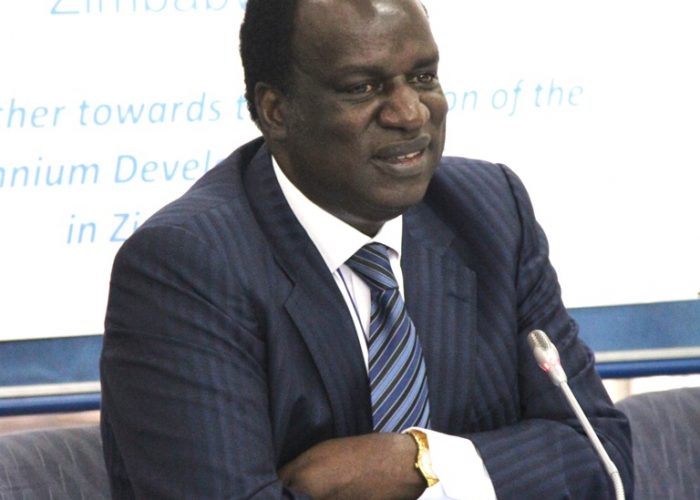



Dr. David Okello is the United Nations World Health Organisation Representative in Zimbabwe
By Dr. David Okello
THE enjoyment of the highest attainable standard of physical and mental health is not only a fundamental human right, but a perquisite to the attainment of sustainable development, peace and security.
To this end, the World Health Organization (WHO) was established in 1948 to realize the highest possible level of health for all.
Every year on 7 April, World Health Day is celebrated to mark the anniversary of the founding of the WHO and to raise awareness of key global public health issues.
This year, the WHO is marking World Health Day by raising awareness on diabetes and calling for action by individuals and countries to halt the rise of diabetes worldwide.
In Zimbabwe, the Government, WHOas well as the Zimbabwe Diabetic Association have been campaigning to increase public awareness about the rise in diabetes, and its staggering burden and consequences.
Why the focus on diabetes?
422 million people have diabetes around the world. That’s almost four times the number of people living with diabetes than in 1980. Most of them live in developing countries, and factors driving this dramatic rise include overweight and obesity.
In 2012, it is estimated that diabetes was the direct cause of some 1.5 million deaths, with more than 80% of those occurring in low- and middle-income countries. WHO projects that diabetes will be the seventh leading cause of death by 2030.
Latest statistics from the Zimbabwe Diabetic Association estimate that 1.4 million Zimbabweans have diabetes (over 10% of the total population), which is characterized by dry mouth and extreme thirst, a constant need to urinate especially at night, and unexplained and un-intentional weight loss.
On the occasion of the World Health Day and in line with the theme, I would like to highlight four key messages on the prevalence of and prevention methods for diabetes:
Firstly, a large proportion of diabetes cases are preventable.
Interventions to promote healthy diet and physical activity are effective in preventing or delaying the onset of type 2 diabetes among people at high risk. Maintaining normal body weight, engaging in regular physical activity, and eating a healthy diet can reduce the risk of diabetes.
Secondly, for those already with the disease, diabetes can be controlled and managed to prevent complications. Increasing access to diagnosis and affordable treatment, including patient education for self-care, are vital components of the response. This is a chronic lifelong disease that the affected persons need to learn about, and learn to live with it to avoid complications which can be severe and fatal.
Thirdly, diabetes is not just a health issue.
The disease and its complications impose a substantial public health and socioeconomic burden to people with it; and to their families, the health systems and national economies, through direct medical costs and loss of work and wages.
Working to prevent, detect and treat diabetes is also critical to development efforts. Within the 2030 Agenda for Sustainable Development, Governments have set an ambitious target to reduce premature mortality from non-communicable diseases – including diabetes – by one third; achieve universal health coverage; and provide access to affordable essential medicines – all by 2030.
Non-communicable diseases, also known as chronic diseases, are not passed from person to person. They are of long duration and generally slow progression. The four main types of non-communicable diseases are cardiovascular diseases (like heart attacks and stroke), cancers, chronic respiratory diseases (such as chronic obstructed pulmonary disease and asthma) and diabetes.
Non-communicable diseases already disproportionately affect low- and middle-income countries where nearly three quarters of the deaths – 28 million – occur.
Fourthly, enough attention must be given to diabetes and other emerging non-communicable diseases – both locally and internationally. The true burden of non-communicable diseases is largely unknown, particularly in developing countries, thereby presenting a challenge in appropriate deployment of interventions
For effective planning of response, we first need to have a full picture of the true burden of non-communicable diseases in the country.
I would like to reiterate the commitment of WHO and also urge the Government and development partners working in the health to continue improving diagnostic services for diabetes, and to ensure regular availability of insulin and other oral hypoglycaemic agents for treatment.
*Dr. David Okello is the United Nations World Health Organisation Representative in Zimbabwe
Follow us on Twitter on @FingazLive and on Facebook – The Financial Gazette